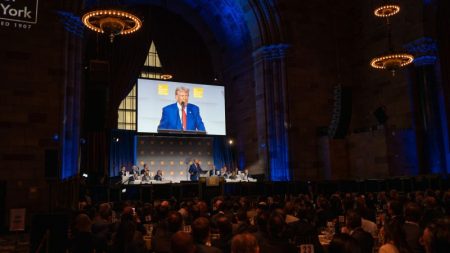Unlock the Editor’s Digest for free
Roula Khalaf, Editor of the FT, selects her favourite stories in this weekly newsletter.
Voters in the Solomon Islands are going to the polls in what has been described by observers as the most important election in the Pacific archipelago’s nearly 50-year history as an independent nation.
The election on Wednesday is the latest in a series of polls across the Pacific islands that have highlighted the geopolitical tussle between China and the region’s traditional development and security partners, including Australia, New Zealand, the US and France.
The Solomon Islands has been a focal point for those tensions in recent years, and the election could offer a referendum on incumbent Manasseh Sogavare’s efforts to pursue closer ties with Beijing.
His government switched diplomatic recognition from Taipei in 2019 and signed a security and economic pact with China in 2022 that stoked concerns of a hostile strategic military presence to the north of Australia’s coastline, a suggestion Sogavare has denied.
Mihai Sora, a former diplomat and research fellow at the Lowy Institute think-tank in Sydney, said the election could put further pressure on pan-Pacific unity. “A pro-China election could increase regional tension,” he said.
Sogavare has touted the deal on the campaign trail as having “put Solomon Islands on the map”. He has also praised China’s system of government and questioned the merits of democratic values. Some opposition politicians have called for a review or repeal of the security deal in recent months.
Sora noted that while the security deal had captured the most international attention, the economic relationship between China and the Solomon Islands had taken centre stage during the campaign, with most citizens focused on improving standards of living and basic infrastructure.

The election was delayed by a year, a move criticised by opposition MPs, to accommodate the Pacific Games held last year in Honiara, the capital. The city’s new 10,000-seat stadium, funded by Chinese aid and designed and constructed by Chinese companies, has been held up by Sogavare as a symbol of the country’s burgeoning relationship with Beijing.
Other boons of the diplomatic switch have included an overhaul of the country’s telecoms network, with Chinese loans used to buy new Huawei equipment.
“[Sogavare is] trying to derive maximum benefit from the Pacific Games and Chinese investment,” said Sora. “He has demonstrated the benefit of turning towards China.”
The country’s demographics and geography will raise additional logistical challenges for the election, which will be carried out over almost 1,000 islands in what one observer who asked to remain anonymous likened to “50 contests in 50 constituencies”.
Sogavare, who has significant resources compared with rival candidates, is expected by some to become the Solomon Islands’ first post-independence prime minister to be re-elected after serving a full term.
But the result of Wednesday’s election will not be known for days as votes are counted, and observers said post-election negotiations over the formation of a new government, which are expected to take weeks, could elevate a less divisive figure.
A chaotic period of pre-election bargaining between candidates — known as “Devil’s Night”, in which outside interests such as logging companies back candidates — is already in full swing.
It is during these negotiations that tensions could rise as concerns over potential foreign interference come to the fore, according to experts. One observer in Honiara who asked to remain anonymous said the Chinese embassy had already erected cladding.
“The risk of unrest is most pronounced around the formation of government,” said Sora who noted there was a “thick” international security presence on the ground, including Australian and New Zealand police, to guard against a resumption of violence that erupted in 2021 following the switch in diplomatic recognition.
Recent elections across the Pacific have prompted a series of governments to revisit agreements with foreign powers.
In January, Nauru’s new government switched diplomatic recognition from Taiwan to China, while Tuvalu is looking to review a landmark migration and security agreement with Australia.
Read the full article here



